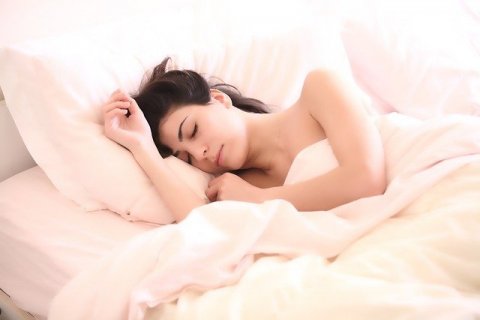Copyright © VSM Pharmacy Limited. All rights reserved. vsmpharmacy.co.uk is a trading name of VSM Pharmacy Limited. Registered office: 124 Frimley Road, Camberley, Surrey, United Kingdom, GU15 2QN. Registered in England: company number 12182298.


March 15th is World Sleep Day, so we thought it would be a good idea to talk about how to get a good night’s sleep.
The Circadian Clock is the medical term for our body clock. Our body clock involves our brain and other organs, and it is triggered by what’s going on in our environment. For example, daylight wakes us up whilst night-time should make us feel relaxed in the run-up to being sleepy at bedtime.
There are also various hormones involved in helping us sleep. One of these hormones is melatonin.
Melatonin tells our brains that it is time for bed, and we should feel sleepy. The problem some people have though is that it won’t work so well if we stay in artificial light. Watching TV, browsing the internet or reading our phones all emit blue light which can inhibit the production of melatonin. This means we’re not sleepy enough when we go to bed.
If we don’t get enough sleep, we not only find it difficult to function during the day, but it could also lead to medical conditions such as diabetes, heart disease and depression.
If you’ve had children, you’ll remember well the routine you created for them before bedtime. It may have been a warm bath, a cuddle, storytime and then bed. Studies show that routines help children’s wellbeing. And believe it or not, it’s the same for adults.
By creating a routine, you are telling your brain to calm down and relax, ready for sleep. Start your routine about an hour before bedtime
So just what type of routine can you create and just how can you get a good night’s sleep?
Decide how many hours of sleep you need to feel refreshed in the morning. Most adults sleep for between 7 to 9 hours. Work backwards to find the time you should be going to bed. For example, if you want 8 hours of sleep and you need to get up during the week at 7.30 am then you’ll need to go to bed just before 11.30 pm. If you feel sleepy when you wake up it could be that you need another hour in bed, so change your bedtime to 10.30 pm. This routine may be how to help you get a good night’s sleep.
You don’t want to eat a huge meal, but a snack and a hot drink before bedtime may help to relax you. A yoghurt, some nuts or fruit are healthy bedtime snacks. Drinks shouldn’t contain caffeine because this will wake you up. Milk or chamomile tea are relaxing alternatives to standard tea or coffee.
Stretching and breathing exercises help you to relax. Studies have shown that relaxation techniques help people to sleep. This is because light exercise clears your mind and relaxes your muscles. You don’t have to be an expert to try some simple stretching and breathing techniques, there are plenty of short routines on YouTube. Here’s one we found called Bedtime Yoga for Beginners.
A warm bath or shower also helps you to relax before bedtime. This has to do with your core temperature. As you sleep your core temperature drops and reducing your temperature before bedtime should help you to feel sleepy. You’ll feel warm after a bath or shower, but your core temperature will drop as your skin dries and makes us feel sleepy.
Turn off the TV, don’t look at your tablet and leave your phone charging for the next day. Electronic devices emit blue light which tricks the body into thinking it’s daytime, not evening. You might think you’re relaxed while you scroll your Twitter feed, but your body isn’t. Better to read a book or a magazine. You could also listen to music or a sleep app with white or pink noise like waterfalls or waves to help you nod off.
Try and keep your bedroom clutter-free and then you won’t be falling over things or worrying about tidying up at bedtime. Make sure your curtains don’t let in any light. Use a lamp while you’re getting ready for bed instead of a bright overhead light. Make sure the temperature of your bedroom is right for you and that when you get into bed you feel comfortable and relaxed.
If you still find it difficult to get to sleep and it is affecting your daily life have a word with your doctor or pharmacist. There are many natural sleep aids available. Natural sleep aids containing Lavender, Chamomile and Valerian may help.

Copyright © VSM Pharmacy Limited. All rights reserved. vsmpharmacy.co.uk is a trading name of VSM Pharmacy Limited. Registered office: 124 Frimley Road, Camberley, Surrey, United Kingdom, GU15 2QN. Registered in England: company number 12182298.

To provide the best experiences, we and our partners use technologies like cookies to store and/or access device information. Consenting to these technologies will allow us and our partners to process personal data such as browsing behavior or unique IDs on this site and show (non-) personalized ads. Not consenting or withdrawing consent, may adversely affect certain features and functions.
Click below to consent to the above or make granular choices. Your choices will be applied to this site only. You can change your settings at any time, including withdrawing your consent, by using the toggles on the Cookie Policy, or by clicking on the manage consent button at the bottom of the screen.